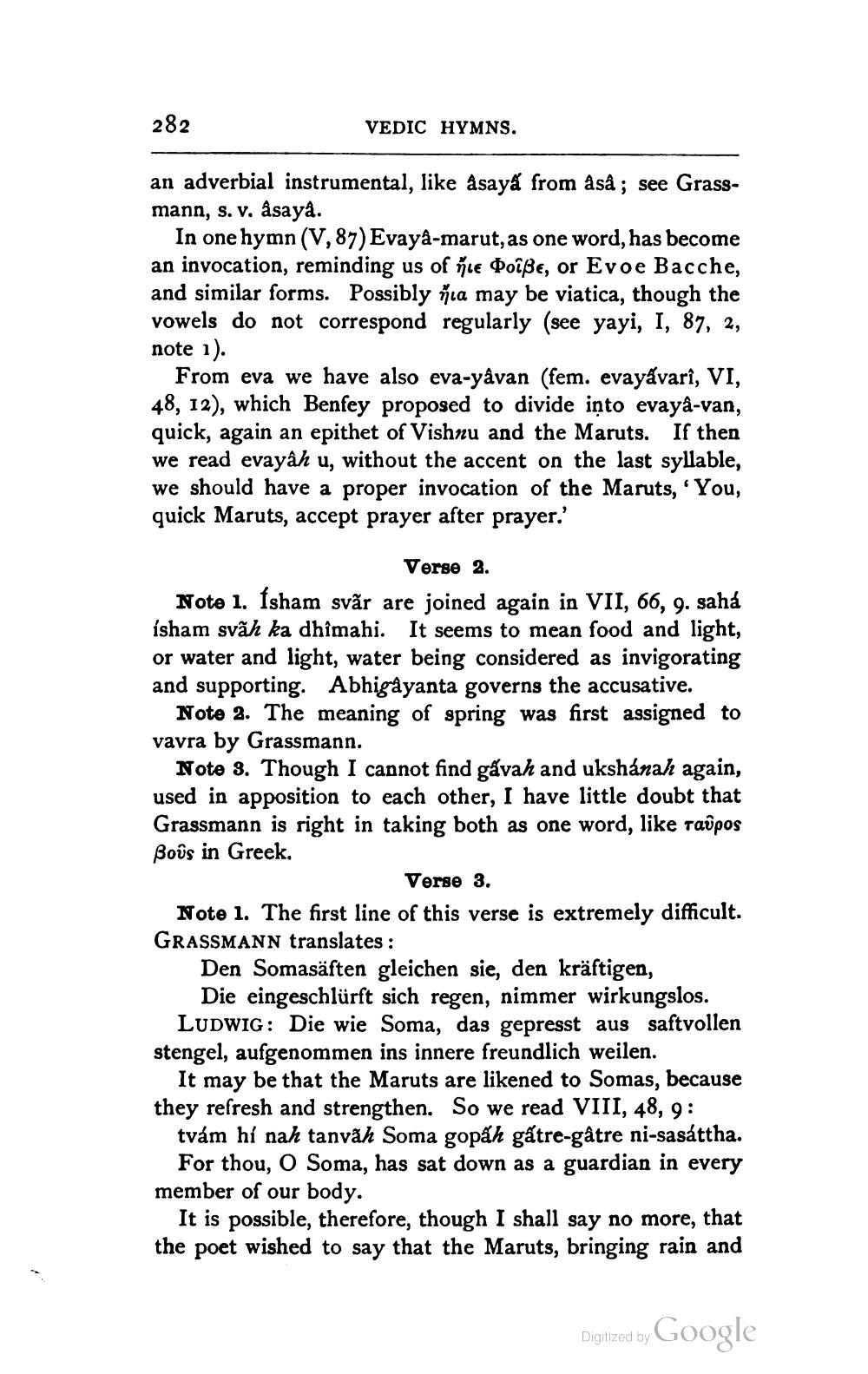________________
282
VEDIC HYMNS.
an adverbial instrumental, like åsaya from àså; see Grassmann, s. v. asaya.
In one hymn (V, 87) Evaya-marut, as one word, has become an invocation, reminding us of ñLe Poiße, or Evoe Bacche, and similar forms. Possibly ñua may be viatica, though the vowels do not correspond regularly (see yayi, I, 87, 2, note 1).
From eva we have also eva-yavan (fem. evayavarî, VI, 48, 12), which Benfey proposed to divide into evaya-van, quick, again an epithet of Vishnu and the Maruts. If then we read evayâh u, without the accent on the last syllable, we should have a proper invocation of the Maruts, 'You, quick Maruts, accept prayer after prayer.'
Verse 2. Note 1. Isham svăr are joined again in VII, 66, 9. sahá isham svãh ka dhimahi. It seems to mean food and light, or water and light, water being considered as invigorating and supporting. Abhigayanta governs the accusative.
Note 2. The meaning of spring was first assigned to vavra by Grassmann.
Note 3. Though I cannot find gåvah and ukshanah again, used in apposition to each other, I have little doubt that Grassmann is right in taking both as one word, like raupos Boüs in Greek
Verse 3. Note 1. The first line of this verse is extremely difficult. GRASSMANN translates :
Den Somasäften gleichen sie, den kräftigen,
Die eingeschlürft sich regen, nimmer wirkungslos. LUDWIG: Die wie Soma, das gepresst aus saftvollen stengel, aufgenommen ins innere freundlich weilen.
It may be that the Maruts are likened to Somas, because they refresh and strengthen. So we read VIII, 48, 9:
tvám hi nah tanvāh Soma gopấh gátre-gâtre ni-sasáttha.
For thou, O Soma, has sat down as a guardian in every member of our body.
It is possible, therefore, though I shall say no more, that the poet wished to say that the Maruts, bringing rain and
Digitized by
Digitized by Google




